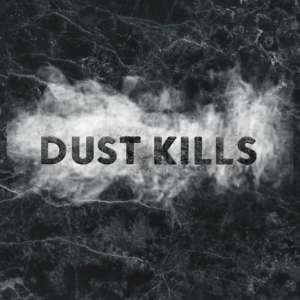Former shipyard worker’s warning to today’s young tradespeople
A former shipyard worker is warning young tradespeople of the dangers of asbestos after losing around a third of his body weight since being diagnosed with mesothelioma.
James Queen, 74, worked as a shipwright in Liverpool and Glasgow where he was exposed to asbestos. Last year he was diagnosed with mesothelioma, a type of cancer linked to asbestos exposure.


Before diagnosis he used to weigh 14-and-a-half stone but now touches the scales at just over 9-and-a-half stone.
Mesothelioma is a type of cancer that develops in the lining that covers the outer surface of some of the body’s organs. James says he was regularly exposed to asbestos as he embarked on an apprenticeship at Glasgow docks in the 1960s.
Statistics published yesterday (6 July) by Great Britain’s workplace regulator, the Health and Safety Executive (HSE), show 2,268 people died from mesothelioma in 2021.
James moved to Liverpool in 1970 and continued working as a shipwright after marrying Patricia. They were married for 51 years – Patricia died in 2022 from dementia, the same year James was diagnosed with mesothelioma.
James said: “I knew something was wrong with me last year but as my wife was ill as well, I just concentrated on her.
“It was only when I had a fall at my wife’s funeral and broke my hip, scans found two types of cancer including mesothelioma.
“I know there’s no cure for it and I’m having treatment every three weeks which is working but my state of life isn’t very good.
“I can’t drive anywhere, I’ve lost my confidence, I’m short of breath, constantly coughing with nothing coming up – my body is wasted.”

Asbestos-related diseases take decades to develop – most people living with them today will have been exposed well before the tightening of controls and the use of asbestos was banned in 1999. However, around five thousand people a year die from asbestos related illnesses.
The current regulations have led to a significant reduction in exposure and the number of people developing asbestos-related illness is predicted to fall as we get further from the date asbestos was banned.
The current regulations state that where asbestos is present in buildings it must be managed, maintained in a good condition, and stay undisturbed. If this level of protection cannot be achieved, then asbestos must be removed.
HSE’s approach to asbestos management is based on evidence that is constantly reviewed.
HSE is running an awareness campaign, Asbestos and You, targeting tradespeople with information about the personal risks from asbestos that still exist across the country today. Younger tradespeople could be at risk when drilling or cutting into material without checking whether it contains asbestos.
Publication of HSE’s figures falls as Action Meso Day takes place today (7 July). This is a national campaign to raise awareness of the asbestos cancer, mesothelioma, and the dangers of asbestos.
James continues to receive treatment at Clatterbridge Hospital in Wirral and added: “Thankfully I’ve got my three sisters who live nearby, a good circle of friends and neighbours so someone is here with me every day. I don’t know how I’d cope without them.
“People just don’t know about mesothelioma and at the time if I knew asbestos was so bad for your health, I’d have never worked with it or around it. Younger tradespeople need to be alert to the danger it poses.”
Ali Wellens, health and work policy lead at HSE said: “Stories likes James’ really hit home the devastating effects past exposure to asbestos can have.
“As we reflect on Action Meso Day we want all tradespeople, of any age, to take the risk from asbestos seriously.”
Visit HSE’s website for further guidance on asbestos.
James’ story was supported through Merseyside Asbestos Victim Support Group.
Notes to editors:
- The Health and Safety Executive (HSE) is Britain’s national regulator for workplace health and safety. We prevent work-related death, injury and ill health through regulatory actions that range from influencing behaviours across whole industry sectors through to targeted interventions on individual businesses. These activities are supported by globally recognised scientific expertise.
- More information about the legislation referred to in this case is available.
- Further details on the latest HSE news releases is available.
